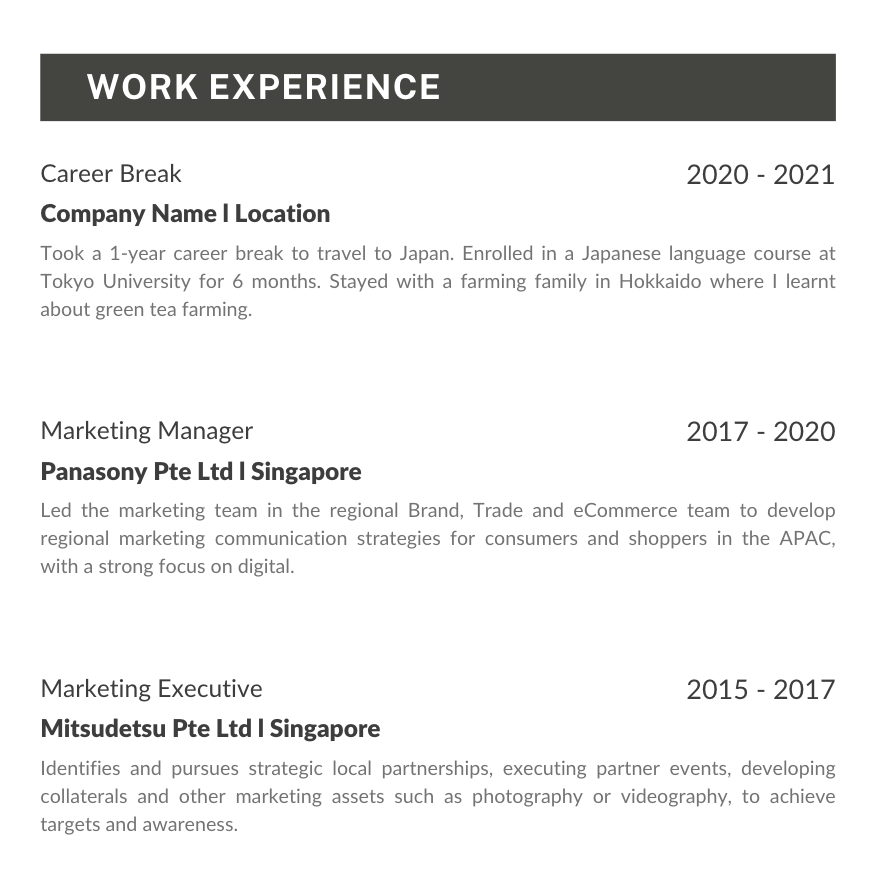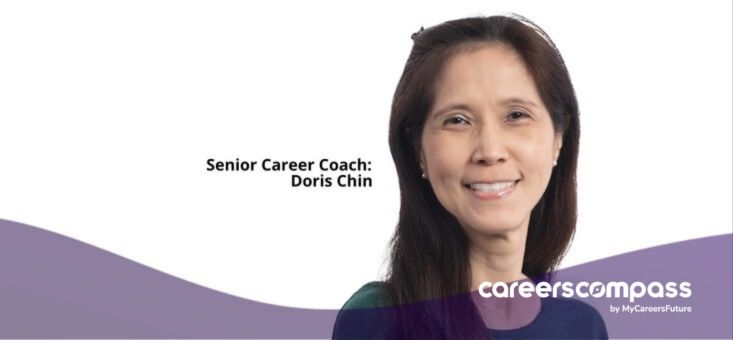Since the onset of Covid-19, workers across the globe are experiencing a career awakening: work is no longer perceived as something that should be prioritised over the other aspects of life. With the phenomenon of the Great Resignation and Great Reshuffle, more employees across the globe are choosing to take an extended break from work.
As it stands, it is not uncommon for employees to take a long break from work at some point in their careers. Some common reasons include needing time to recuperate from health issues and having to take on parental or caregiving commitments.
However, choosing to take a career break for less “pressing” reasons is becoming more commonplace. In fact, more Singapore employees are taking sabbatical leave or opting to resign from their jobs for personal pursuits.
What are the implications of taking an extended break for such self-serving reasons? How will this affect one’s career journey?
We speak to Doris Chin, a Senior Career Coach from Workforce Singapore (WSG) to learn more.
What is considered a long career break?
There is no fixed duration as to what is considered as long. But generally, an employer will consider any period of more than 6 months as a long career break.
Is it advisable to take a long career break?
Yes, taking a break from work can be good for you. It may give you a new perspective on your career or life. But my professional advice is to give yourself a time frame. This will allow you to work on your goal and plan for what comes next.
“It is also important that you know exactly why you are taking this break.”
There are 1001 reasons why people take a career break. The common ones are to rest, spend quality time with their family, or even re-evaluate their career goals.

Focusing on the family is one of the top reasons employees take a career break.It could also be because they want the time to do something else, such as learn new skills, volunteer, travel and so on.
Read More: No Time for Your Kids? Seek a Family-Friendly Workplace
Will taking a long break from work have a negative effect on one’s career journey?
Taking a long break will reflect a gap in your career. So, some employers may have concerns about your readiness, and whether your skillsets and work experience are still relevant.
But of course, not all employers think the same way. There are those who believe that a career break helps people to become better at their jobs and to gain other valuable skills.
“Should an employer ask you about the gap in your career, just be honest.”
You can also highlight the relevant skills that you have gained during the career break.
For example, if you are taking a break to volunteer or to take care of your family, you can bring up your planning or organising skills which are valuable to employers.
What are some of the things a person should consider before taking a career break?
The reasons for taking a career break differ from person to person. In any case, before you make the decision, ask yourself if you are ready to do so.
Go through a checklist of why you are able to take the time away from work. The checklist should include financial commitments, family support, duration of the career break, what you will do during the career break and how to pick up skills from these activities to help in your future career.
There is a difference between wanting a new or different job and wanting a career break. So, this checklist should also include your reason for wanting to take a break.
“You should also be mindful that taking a career break may have an impact on your loved ones. Inform them of your decision in advance so that they can take the time to understand your needs and aspirations.”
How do I position my career break in my resume?
Be upfront about addressing your career break in your resume. This allows you to explain your career break positively to prevent any negative perception by potential employers.
Read More: Q&A: A Career Coach on Singapore’s Latest Hiring Trends and How She Helps the Unemployed
You can do this by including your career break in the career summary at the top of your resume. Also, do highlight the reason and explain how the career break helps you to be successful in your next position.

Your career break can be reflected as if it was a job to account for the gap in your employment. List down the key specific activities that you did and the reason for the career break.

Highlight the skills and experience that you have gained, and how they can be relevant to the role that you are applying for. These non-professional experiences will allow you to stand out from the sea of applications.
After a long career break, what is your advice for people who want to rejoin the workforce?
Do not give up hope, stay connected and upskill yourself to stay relevant.
If you need support, approach Workforce Singapore’s Careers Connect and the Careers Connect-On-the-Go (CCOTG) deployed across Singapore.
The Career Ambassador or Career Coach will provide career advice to guide you in your career transition.
Watch the video of our interview with Doris
Our tip:
If you’re looking for advice on your career journey, register for a complimentary session with WSG’s Career Matching Services and get the support you need here.
Here are some articles about taking a career break that we’ve compiled for your further reading! Good luck!
How to Explain a Gap in Your Resume
After a Career Break: Tips to Return to the Workforce
What You Can Do to Advance Your Career After a Long Break From Work
Troubled by Office Stress or Workload Woes: How to Catch Up and Improve
During Career Breaks: 3 Better Ways to Manage Your Well-Being
Watch our other videos in this series
On the Job Hunt: How Can I Increase My Chances of Promotion at Work?
On the Job Hunt: The Importance of Mentorship and How it Can Benefit Your Career















